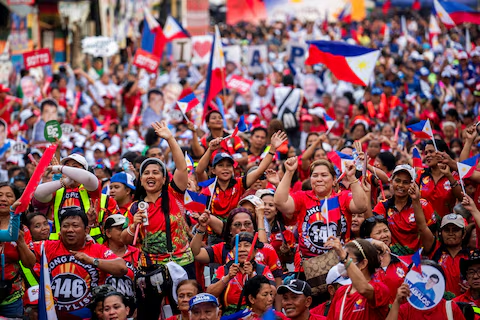In the lead-up to the Philippines’ midterm elections on May 12, 2025, China has emerged as a central issue influencing political discourse and voter sentiment. The elections, which will determine the composition of the Senate and local governments, are pivotal for President Ferdinand Marcos Jr.’s administration as it seeks to solidify its legislative agenda for the remaining three years in office.
President Marcos has adopted a firm stance on national sovereignty and maritime rights, particularly concerning disputes in the South China Sea. This approach contrasts with former President Rodrigo Duterte’s pro-China orientation. Marcos has emphasized incidents involving Chinese actions against Filipino fishermen and coast guard personnel to galvanize support.
The political landscape is further complicated by the rift between President Marcos and Vice President Sara Duterte, daughter of former President Duterte. Once allies, their relationship has deteriorated, culminating in an impeachment trial against Vice President Duterte over alleged threats against the president. The Senate, which will serve as the impeachment jury, is a focal point in the midterm elections, adding to their significance.
Disinformation has emerged as a significant concern, with reports indicating that nearly half of online election discussions are linked to fake accounts. Additionally, there are allegations of Chinese influence operations aimed at swaying voter opinion, which Beijing has denied.
The outcome of these elections will not only shape domestic governance but also influence the 2028 presidential race, where Vice President Duterte could be a contender if she survives the impeachment process.
Source: Reuters



